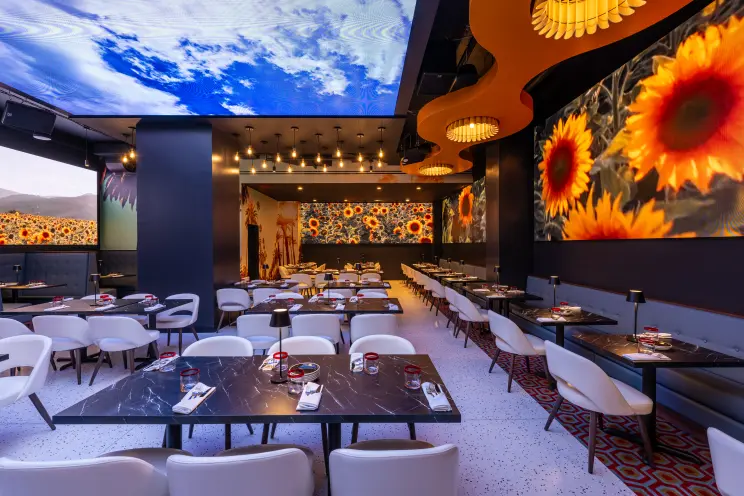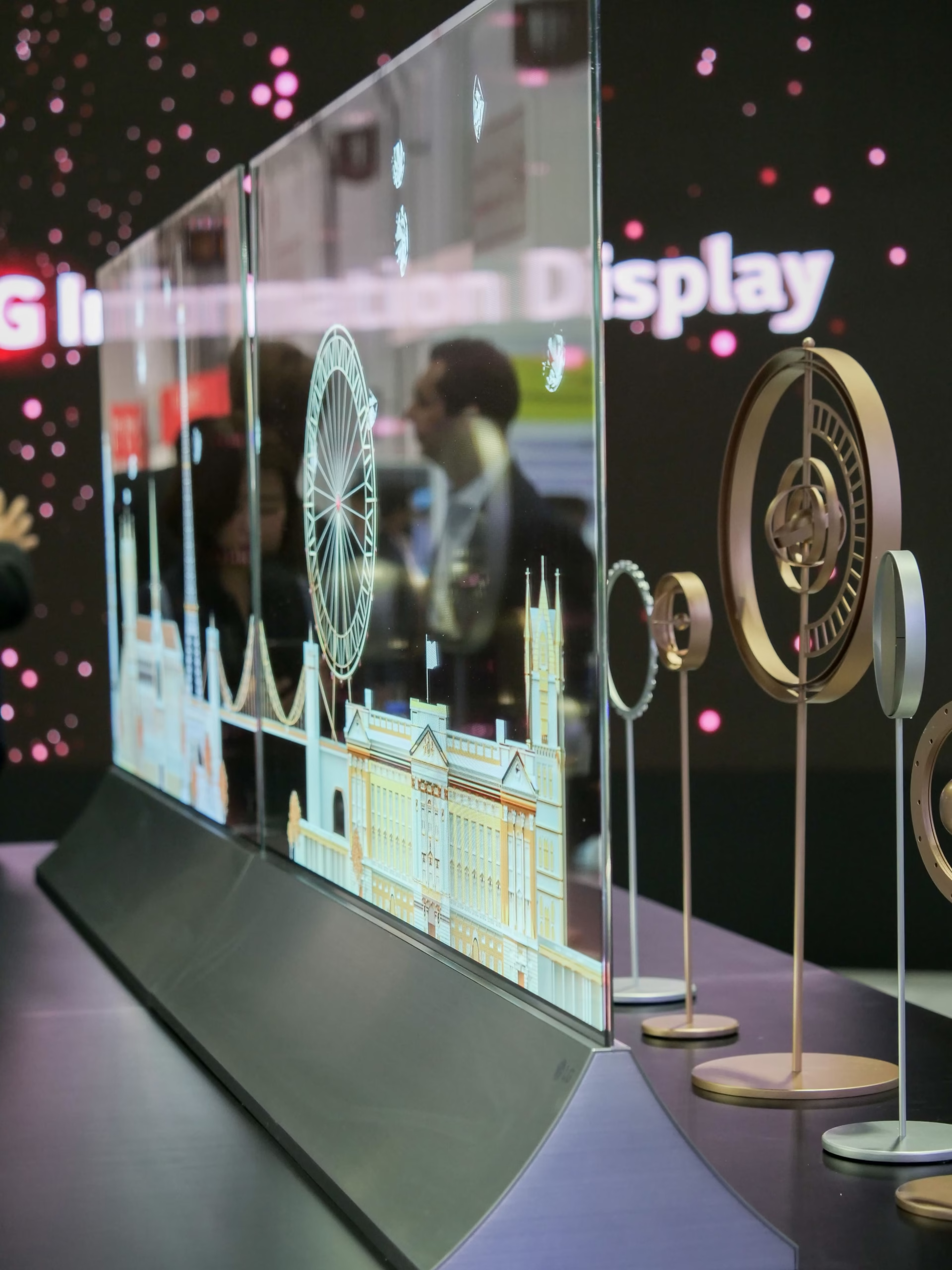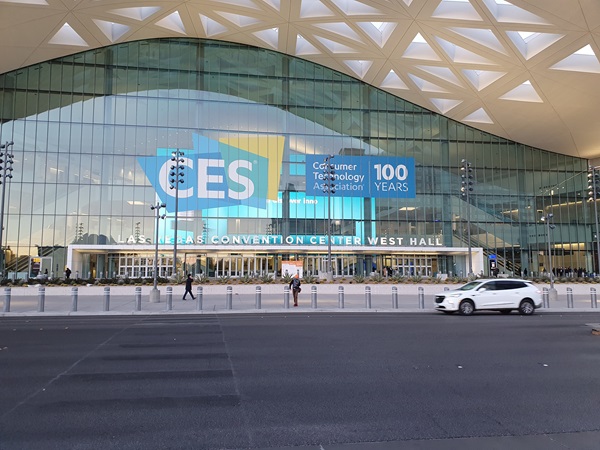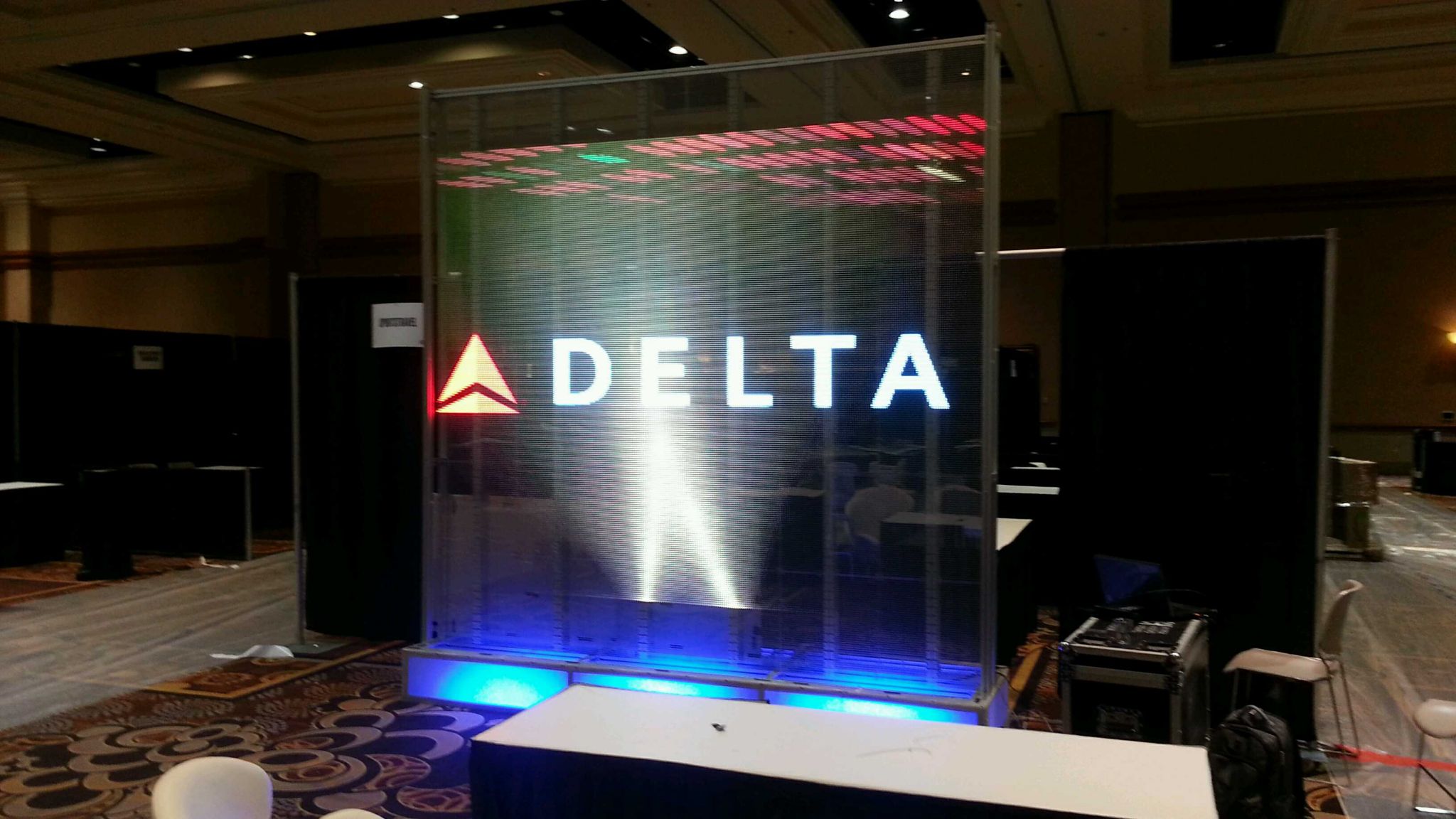

Digital signage is no longer just a trend—it’s a necessity. From bustling retail windows to high-end hotel lobbies and product launches, screens are everywhere. But with all the buzz around transparent LED displays, many business owners are asking the same question: How does the cost compare to traditional signage?
If you’re weighing whether to go with a classic digital screen or invest in a transparent screen for retail, this breakdown will help you see the full picture—not just in terms of price, but long-term value and creative potential.

Traditional digital signage (like LED TVs or standard LED panels) typically comes with lower upfront costs. You can get a basic digital display up and running fairly quickly, especially if your space already supports mounting and power.

But transparent LED displays—while more premium—bring more flexibility and design appeal. The initial cost for a glass LED screen or transparent OLED display is generally higher, due to the specialized hardware and manufacturing. If you’re going custom size or large format, like a transparent video wall, the investment grows.
However, context matters. A transparent LED screen doubles as architecture and media. For example, it doesn’t require a separate window and screen—it becomes both. Over time, that integration can offer design and energy savings, especially in modern retail environments.

| Display Type | Avg. Cost per sq. ft (USD) |
|---|---|
| Traditional LED screen | $200–$400 |
| Transparent LED display | $500–$1,200 |
| Transparent OLED display | $1,000–$2,000 |
| LED film screen (lightweight) | $300–$700 |
Note: Prices vary based on pixel pitch, brightness, brand, and customizations. Always consult a trusted transparent digital signage supplier for exact figures.
Traditional signage requires physical space and structure. It’s usually mounted in front of walls or windows, and depending on the design, may block light or limit interior visibility.
On the other hand, transparent signage for pop-ups, hotels, or storefronts integrates directly onto glass or frames—meaning no bulky mounts, and no visual obstruction. Installation of a transparent display screen for events or window display advertising screen might cost more initially, but it preserves your store’s open, minimalistic aesthetic.
This makes a transparent screen installation especially popular in:

Where transparent displays really win is visibility and creativity. With a see-through advertising screen, your content feels integrated, not just pasted on. And that subtlety turns heads. Customers see your product and the message—at the same time.
Traditional screens might show the same content, but they tend to dominate the space. If you’re working with high-end branding, the immersive and non-obtrusive nature of transparent tech makes a difference in perceived value.
Many brands report:
While harder to quantify immediately, these elements contribute to the long-term ROI—especially in retail environments where experience is key.

Traditional screens are often easier (and cheaper) to repair or replace. Their components are more standardized, and servicing is straightforward.
Transparent LED displays, however, are evolving fast. Today’s ultra-thin transparent LEDs and LED window display panels are designed for durability, low energy use, and heat management. Leading vendors, like SeeThruDisplay, are working with manufacturers to build more modular systems—making service and upgrades easier than in previous years.
If you’re considering buying a transparent LED screen, ask about:
These affect not only the screen’s lifespan, but its overall cost efficiency.

Not ready to commit to full ownership? Many businesses rent transparent screens for temporary activations, exhibitions, or seasonal campaigns. Especially in major hubs like Los Angeles, transparent screen rental options make it possible to test the waters before investing long-term.
For campaigns like:
Rentals can be a great way to experiment with transparent LED signage without locking into a full install.
If budget is your only concern, traditional signage might seem like the safer choice. But if you’re thinking long-term—about aesthetics, brand perception, and customer experience—a transparent LED display often pays for itself in impact.
The best strategy? Match your signage to your space and goals. In some cases, mixing both—transparent screens in high-visibility areas, and traditional displays in more functional zones—strikes the perfect balance.
Companies like SeeThruDisplay are helping brands design smart, scalable screen solutions that aren’t just futuristic—they’re functional.
If you’re investing in digital signage, don’t just compare prices—compare possibilities.